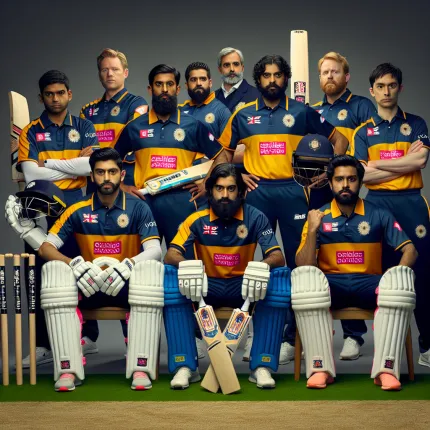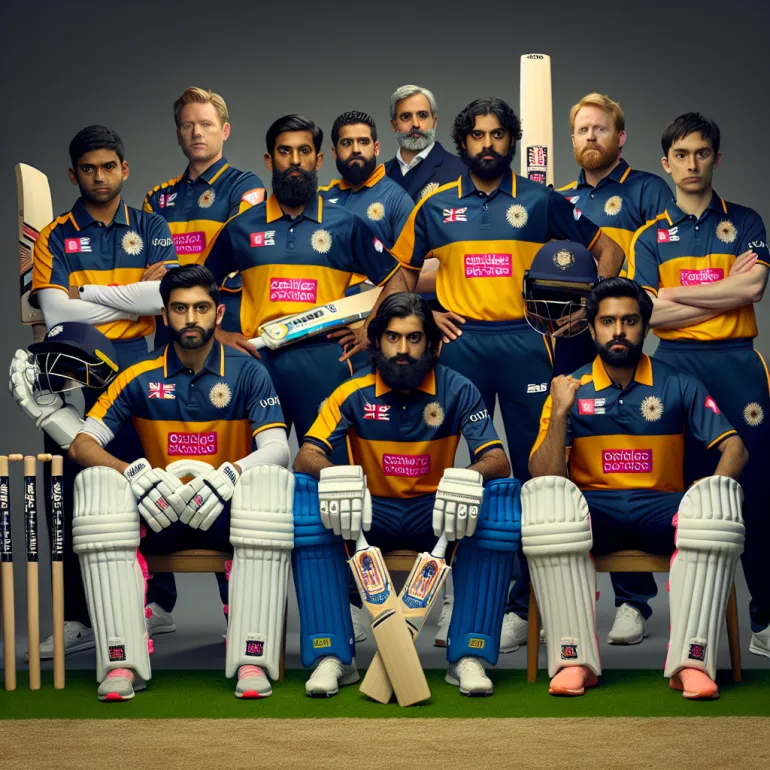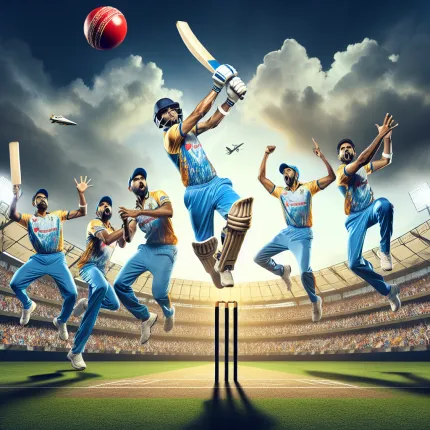
The Indian Premier League (IPL) is one of the most celebrated cricket tournaments globally, attracting top talent from around the world. Each year, the league captivates millions of fans with its high-octane matches and star-studded line-ups. Central to the excitement of the IPL are the team squads, which are meticulously crafted to balance skill, strategy, and star power. This article delves into the intricacies of IPL team squads, exploring their composition, strategies, and the impact they have on the tournament's outcome.
The Structure of IPL Team Squads
Each IPL team is allowed a squad of up to 25 players, with a maximum of 8 overseas players. The composition of these squads is crucial, as it determines the team's performance throughout the tournament. The squads are built through a combination of player retention, auctions, and trades.
Player Retention
Before the IPL auction, teams have the option to retain a certain number of players from their previous squad. This retention strategy allows teams to maintain a core group of players who have proven their worth. For instance, the Chennai Super Kings have consistently retained players like MS Dhoni and Suresh Raina, who have been instrumental in their success.
The IPL Auction
The IPL auction is a highly anticipated event where teams bid for players to fill their squads. The auction is a strategic affair, with teams balancing their budgets while trying to acquire the best talent. The 2021 auction saw Chris Morris become the most expensive player in IPL history, bought by Rajasthan Royals for INR 16.25 crore.
Player Trades
In addition to the auction, teams can trade players with other franchises. This allows teams to address specific needs or offload surplus players. For example, in 2020, Delhi Capitals traded Trent Boult to Mumbai Indians, a move that significantly bolstered Mumbai's bowling attack.
Key Components of a Successful IPL Squad
Building a successful IPL squad requires a blend of experience, youth, and versatility. Here are some key components that teams consider:
- Experienced Leaders: Captains like Rohit Sharma and Virat Kohli bring invaluable experience and leadership to their teams.
- Explosive Batsmen: Players like AB de Villiers and David Warner are known for their ability to change the course of a match with their batting prowess.
- All-Rounders: All-rounders like Ben Stokes and Hardik Pandya provide balance to the team, contributing with both bat and ball.
- Specialist Bowlers: Bowlers like Jasprit Bumrah and Rashid Khan are crucial for taking wickets and controlling the run rate.
- Young Talent: Emerging players like Rishabh Pant and Shubman Gill bring fresh energy and potential to the squad.
Case Studies: Successful IPL Team Squads
Mumbai Indians: A Model of Consistency
Mumbai Indians (MI) are the most successful team in IPL history, with five titles to their name. Their success can be attributed to a well-balanced squad and astute leadership. MI's strategy revolves around retaining a core group of players, such as Rohit Sharma, Kieron Pollard, and Jasprit Bumrah, while adding impactful players through the auction. Their ability to identify and nurture young talent, like Ishan Kishan and Suryakumar Yadav, has also been a key factor in their dominance.
Chennai Super Kings: The Power of Experience
Chennai Super Kings (CSK) have been one of the most consistent teams in the IPL, thanks to their reliance on experienced players. Led by MS Dhoni, CSK's squad often features seasoned campaigners like Faf du Plessis and Dwayne Bravo. This experience has helped them perform under pressure and maintain a high level of consistency. CSK's strategy of backing experienced players has paid off, as evidenced by their three IPL titles.
The Impact of Overseas Players
Overseas players play a crucial role in the IPL, bringing international experience and flair to the tournament. Teams often rely on these players to provide match-winning performances. For instance, players like Andre Russell and Sunil Narine have been pivotal for Kolkata Knight Riders, while David Warner has been a cornerstone for Sunrisers Hyderabad.
However, the inclusion of overseas players also presents challenges. Teams must carefully manage their playing XI, as only four overseas players are allowed in a match. This requires strategic decision-making to ensure the right balance between domestic and international talent.
Statistics and Trends in IPL Team Squads
Analyzing statistics and trends provides valuable insights into the composition and performance of IPL team squads. Here are some notable trends:
- Increased Focus on All-Rounders: Teams are increasingly valuing all-rounders for their ability to contribute in multiple facets of the game. The 2021 auction saw high demand for all-rounders like Glenn Maxwell and Kyle Jamieson.
- Emphasis on Young Talent: Franchises are investing in young Indian talent, recognizing their potential to become future stars. Players like Devdutt Padikkal and Prithvi Shaw have been given significant opportunities to showcase their skills.
- Strategic Use of Overseas Players: Teams are becoming more strategic in their use of overseas players, often rotating them based on form and opposition. This approach allows teams to maximize the impact of their international stars.
Challenges in Building IPL Team Squads
Building a successful IPL squad is not without its challenges. Teams must navigate several obstacles, including:
- Budget Constraints: With a salary cap in place, teams must carefully manage their finances to build a competitive squad.
- Injury Concerns: Injuries to key players can disrupt team balance and affect performance. Teams must have adequate backups to mitigate this risk.
- Form and Consistency: Maintaining player form and consistency throughout the tournament is crucial for success. Teams must manage player workloads and make strategic decisions to ensure peak performance.
Conclusion: The Art of Crafting IPL Team Squads
The composition of IPL team squads is a complex and strategic process that requires careful planning and execution. Successful teams like Mumbai Indians and Chennai Super Kings have demonstrated the importance of balancing experience, youth, and versatility. The inclusion of overseas players adds an exciting dimension to the tournament, while emerging trends highlight the evolving nature of squad composition.</p



